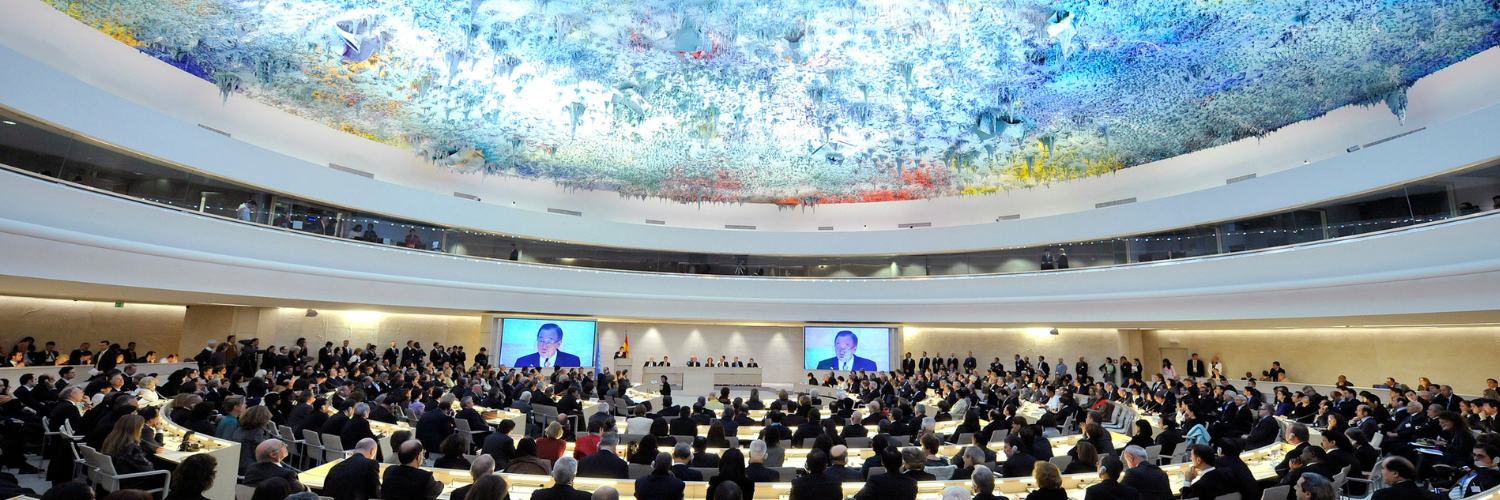NEW YORK, July 4 (C-Fam) UN human rights officials took over the 59th session of the UN Human Rights Council to promote divisive social policies, including advocating for “gender-affirming care” services for migrants and criticizing countries that do not support pride marches, LGBT-friendly curricula in schools, and the killing of the unborn.
Held from June 28 to July 9th in Geneva, Switzerland, this year’s UN Human Rights Council session convened member states, UN agencies, and accredited civil society organizations to engage with UN special rapporteurs’ latest reports.
UN High Commissioner for Human Rights Volker Türk opened the session by decrying “populist” movements and their pushback against DEI [diversity, equity, and inclusion] policies.
“Populists and authoritarians are working hard with their so-called culture wars to distract people from today’s very real problems […] Some call these DEI policies. I call them standing up for equality,” Türk said.
A glossary on DEI usage within the UN system reveals that the UN understands DEI to encompass a commitment to controversial gender ideology ideas, including promoting a vision of gender disconnected from biological reality, identity politics, and “sexual rights.” These ideas are highly controversial among member states and were never agreed to by consensus at the UN.
Under the Trump administration, the US rejected DEI and gender ideology terminology and policies at the UN, referring to them as “radical” and “immoral.” Argentina’s Javier Milei and Turkey’s Recep Tayyip Erdoğan expressed similar concerns at international fora.
Despite the polarizing nature of DEI and gender ideology, Türk proceeded to criticize Georgia, Hungary, Slovakia, and Turkey for their stance against “LGBTIQ+ advocacy” and LGBTQ-friendly curricula in schools and their refusal to host Pride marches. Last week, the Special Procedures segment of the UN Human Rights Council released a media statement expressing “grave concern” at Hungary’s decision not to host a pride march in 2025.
The Independent Expert on Sexual Orientation and Gender Identity presented a report on forced displacement to the Human Rights Council, claiming that countries need to provide gender-affirming care to migrants.
Tlaleng Mofokeng, UN Special Rapporteur on the Right to Health, took it to the Council to advocate for a “paradigm shift to reimagine health systems,” asking for “full decriminalization of abortion and ensuring that there is no barrier both from patient access and a careworker provision side.”
In her report, Mofokeng asked that medical education be updated “through a human rights, community-based approach that embodies ethical practices and empowers both providers and patients.” Mofokeng spoke against doctors’ conscientious objections to abortion, framing them as a potential violation of the sexual and reproductive rights of women.
Ms. Haina Lu, a Member of the Working Group on Discrimination Against Women and Girls, criticized countries that enact pro-natalist and family-oriented policies and said that “Article 1 of the Universal Declaration of Human Rights (UDHR) “is clear that human rights are granted to born people.”
Despite the repeated pro-abortion rhetoric at the UN, its member states never agreed to an international right to abortion, many of them holding that the right to life beginning at conception is consistent with the text of the UDHR, which claims in Article 3 that “Everyone has the right to life, liberty and security of person.”
Argentina pushed back against Lu’s comment on abortion, saying that “two lives are at stake,” that babies in the womb “have no voice,” and that “it is up to decision-makers and leaders to defend equal dignity and their rights.”
View online at: https://c-fam.org/friday_fax/radical-social-policies-on-full-display-at-un-human-rights-council/
© 2026 C-Fam (Center for Family & Human Rights).
Permission granted for unlimited use. Credit required.
www.c-fam.org









